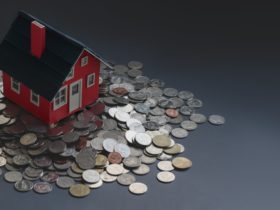Refinancing a mortgage pays off your existing home loan and replaces it with a new one. It’s a good idea to refinance your mortgage if you want to:
Shorten the Loan Term
Sometimes, when interest rates fall, homeowners can refinance a mortgage to shorten the loan term without much change in the monthly payment. However, at times, a shorter loan term may mean higher monthly payments, so do the necessary calculations before refinancing your mortgage.
Get a Lower Interest Rate
Lowering the interest rate on your existing loan is the best reason to refinance a mortgage. The general rule of thumb is to refinance if your interest rate is going to reduce by a minimum of 2%. However, many lenders encourage borrowers to refinance even if the savings are around 1%.
A reduced interest rate means saving more money, decreasing your monthly payment, and increasing the rate at which you build equity in your home. Imagine you have a 30-year fixed-rate mortgage on a $100,000 home. The interest rate on this loan is 5.5%, and the principal and interest payments are $568. If you refinance this mortgage to get an interest rate of 4.1%, your payment comes down to $477, saving you big bucks.
Switch to An Arm or Fixed-Rate Mortgage
Adjustable-rate mortgages (ARMs) initially offer lower interest rates than fixed-rate mortgages. However, due to periodic adjustments, the interest rates often become higher than what would be available through a fixed-rate mortgage. In such a situation, shifting to a fixed-rate mortgage would mean lower interest rates and the elimination of uncertainty about a hike in interest rates.
It’s a sound strategy to switch from a fixed-rate mortgage to an ARM if interest rates are on the decline, especially for homeowners who don’t plan to stay in their home only for a few years. Since ARMs usually have lower monthly payments, homeowners can save a sizable amount. If the rates continue to reduce, the periodic rate adjustments only mean lower interest rates and monthly payments. Moreover, you don’t have to refinance every time the rates come down.
It’s also a wise decision to refinance your mortgage if you plan to consolidate debt or tap the equity in your home. Before you take the big leap, ask yourself how long you’re going to stay in your home and how much money you’ll save by refinancing.

























